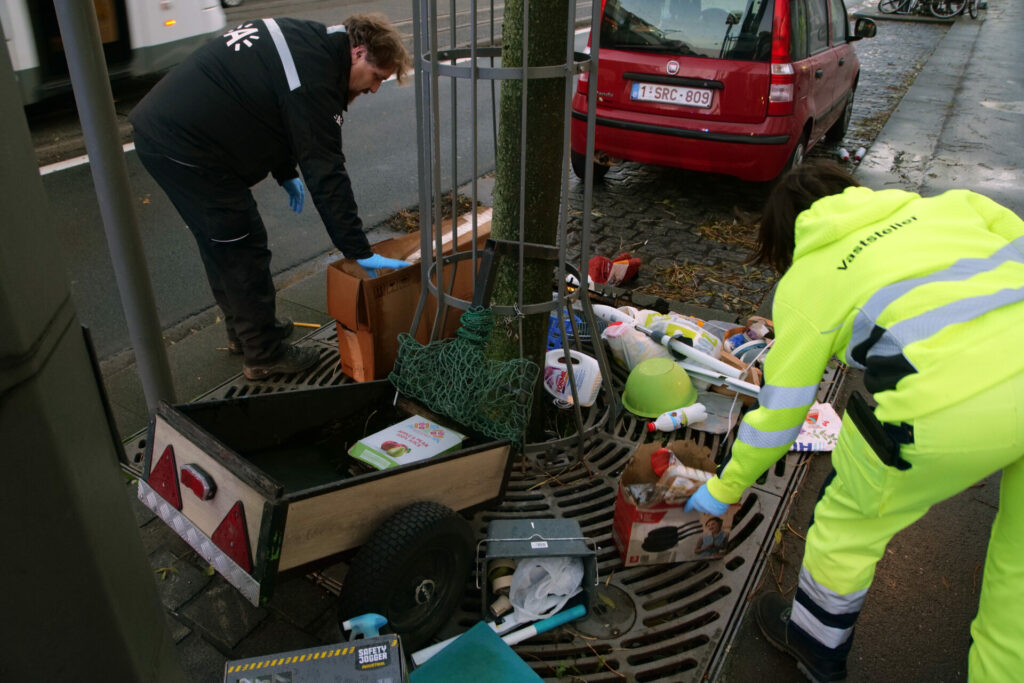Flanders has stepped up its fight against people littering the public space, resulting in a record number of fines being handed out. The price of the penalty has also been further increased.
Litter in public spaces not only causes a nuisance to neighbourhoods, it is also expensive for authorities to clean up. In the region, thousands of tonnes of litter are being discarded every year, resulting in clean-up operations costing millions of euros annually.
Efforts are being made to make people more conscious of the impact this has by making neighbourhoods more attractive and installing more bins. But this is often not enough: in many cases, a change in attitude is needed, driven by fines.
'Anti-social behaviour'
Since the end of 2021, litter enforcers have been active at the Public Waste Agency (OVAM) to assist cities and municipalities in their fight against litter, specifically to carry out anonymous checks on litter. If they identify a violation, they make an administrative report and provide it to the municipal sanctioning officer for further follow-up.
Last year, the team made as many as 8,311 reports for littering, 65% more than in 2022. Most of the violations concerned cigarette butts, followed by dog faeces or not carrying a dog waste bag, drink and food containers and chewing gum.
"A fine for littering is more than a question of 'the polluter pays'. It is a fine for bad anti-social behaviour," Flemish Environment Minister Zuhal Demir (N-VA) said. "Fines in this case are an ultimate stopgap measure. It is so easy to dispose of rubbish correctly. Cities and towns invest in proper waste policies and public dustbins. Polluting people's environment is a choice you can avoid with very little effort."
While the total number of fines issued by municipalities last year is not yet known, the most recent figure was 17,263 for just over 5,000 reports, meaning it is likely the number will surpass 20,000, marking a new record.
Related News
- Disgruntled Charleroi citizens launch ‘most disgusting street’ contest
- Cargo bike crosses Belgian coast to combat cigarette butts
However, the litter enforcers are only active in 142 municipalities, meaning these figures are only the tip of the iceberg. Since 2022, cities and municipalities themselves have also been issuing more and more retributions and municipal administrative sanctions (GAS fines).
The long-awaited request from Flanders to raise the maximum amount for this type of fine to €500 was finally addressed. "I call on municipal councils to also implement this in the local GAS regulations," Demir concluded.

